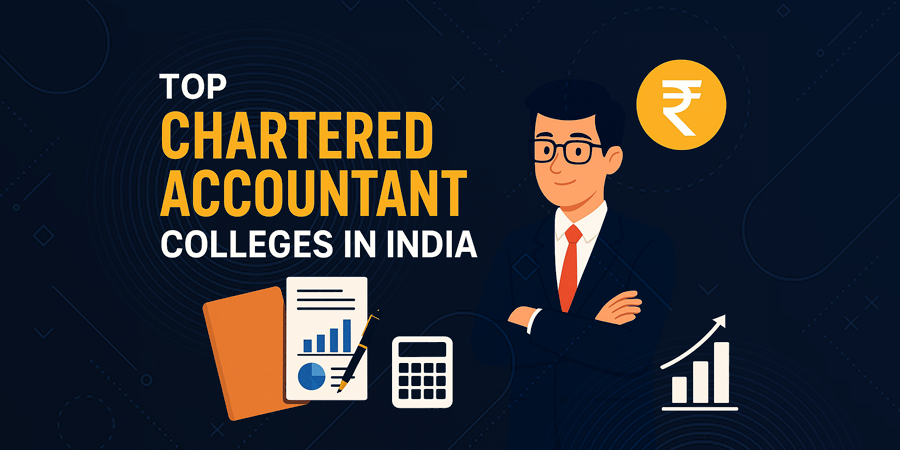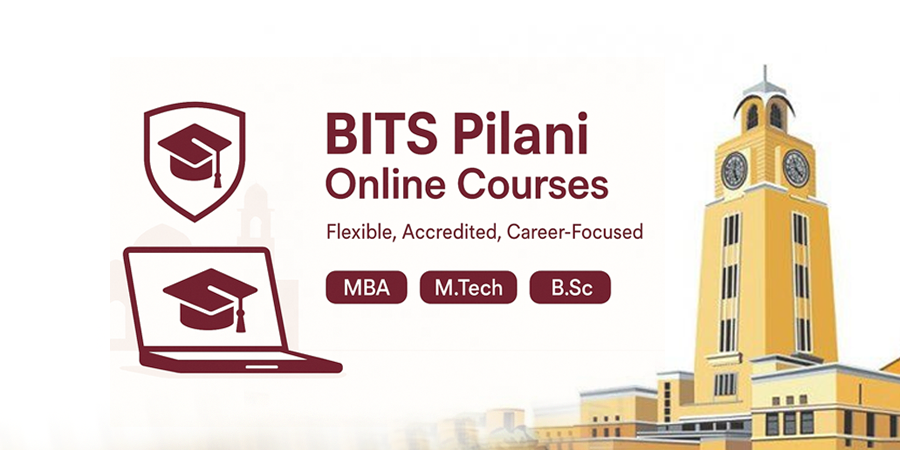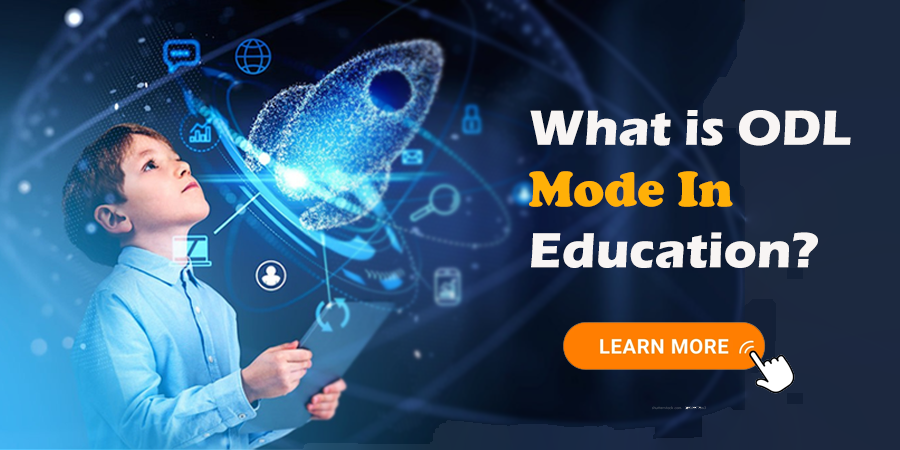Online BCA in AR and VR involves students to make them proficient in the latest technology that is immersed in today’s business world. This program combines an introduction to computer science concepts with practical training in creating AR and VR applications and designing real-world 3D models, interfaces, and user experiences. Students are taught how to design user consequential gaming worlds as well as educational and health applications. Flexible and accessible, it enables the learners to harmonize learning with working, creating opportunities for innovative professions in the constantly changing, technologically driven today’s world.
Why to pursue online BCA in AR and VR?
Doing an online BCA in AR and VR in India has the advantage of multimedia learning since students can study at their own pace without necessarily physically attending class. Students receive the program’s up-to-date skills in virtual reality, which can create various exciting and well-paid job offers in the sphere of gaming, entertainment, healthcare, and education. The accelerated technological advancement in India, especially in the tech sector, and graduates embracing AR and VR-related jobs offer job opportunities to graduates. Moreover, access to quality education and its relevance to the industry allows students to obtain an innovative experience in a digital environment, fostering the development of a considerably important aspect of higher learning.
Objectives of Online BCA course in AR and VR
- Prepare students for different levels of advanced practice AR and VR technologies computation, 3D modeling, and interactive interface design.
- Promote research on ingenuity and the concept of establishing environments that facilitate participants’ engagement in numerous forms and contexts.
- Acquire a deep set of insights and be able to properly solve certain issues that may occur in AR and VR projects.
- Provide knowledge and training required in the modern world job marketplace, therefore being capable of producing marketable personnel.
- Provide an open platform for enabling learning, incorporating a comfortable point in time for any candidate to learn without necessarily having to attend class physically. Interdisciplinary, self-paced, and online learning can allow education to be available to many who would not otherwise be given the chance.
Curriculum
Online BCA in AR and VR in India prepares its learners for the industry by offering required computer science courses and specialization in AR and VR application development, 3D modeling, interactive design, user experience, and more, with an emphasis on project-based learning. It merges the execution of the theory and applicability of actual working experiences so that the students can be placed in the immersive technology domain of a selected industry. The following curriculum may vary with the choice of university:
Semester-I | Semester-II |
· Mathematical Foundation · Computer Fundamentals · Problem Solving Programming · Environmental Studies · Professional Communication-I | · Probability and Statistics · OOPs with Java · Operating System · Database Management System · Professional Communication-II |
Semester-III | Semester-IV |
· Life Skills · Linear Algebra · Optimization Techniques · Computer Networks · Software Engineering | · UI/UX Designing · Optimization Techniques · AR and VR Fundamentals · Web Technologies · Computer Graphics |
Semester-V | Semester-VI |
· VR Technologies · 3D Workflows · Web Development · Elective-I · Elective-II | · Mobile Computing · Animation Algorithm · Mobile Development · Project Work |
Books in online BCA course in AR and VR
- Learning Virtual Reality: Developing Immersive Experiences and Applications for Desktop, Web, and Mobile by Tony Parisi
- Augmented Reality: Principles and Practice by Dieter Schmalstieg and Tobias Hollerer
- Unity in Action: Multiplatform Game Development in C with Unity 5 by Joseph Hocking
- Prototyping Augmented Reality by Tony Mullen
- 3D User Interfaces: Theory and Practice by Doug A. Bowman, Ernst Kruijff, Joseph J. LaViola Jr., and Ivan Poupyrev
- The VR Book: Human-Centered Design for Virtual Reality by Jason Jerald
- Augmented Human: How Technology Is Shaping the New Reality by Helen Papagiannis
- Building Virtual Reality with Unity and SteamVR by Jeff W. Murray
- Mastering Augmented Reality Development with Unity by Jonathan Linowes
- Practical Augmented Reality: A Guide to the Technologies, Applications, and Human Factors for AR and VR by Steve Aukstakalnis
Eligibility
- Certain qualifications required from candidates include the candidate’s having completed higher secondary education (10+2) from a recognized educational board with a minimum pass percentage ranging from 50-60%.
- There are certain rules and regulations of the institutions to complete the 10+2 examination; the candidate has to take Mathematics as one of the subjects in their exam because the BCA program mostly involves mathematical ability and logical aptitude.
- Entrance exams are conducted in some universities and institutions. However, the requirements for higher education institutions may vary by institution.
- Some programs may involve interviews, additional tests related to personal achievements, participation in clubs and organizations, or a personal statement in order to evaluate the candidate’s interest in the field of AR and VR.
Duration
Online BCA in AR and VR courses offered in India usually take three years, with the program being subdivided into six semesters. Their academic year lasts approximately six months per semester, during which fall and spring semesters teach theories and skills. The necessity of owning a car and the availability of courses in the evening also make it convenient for students to take as long as five years to complete the program if required. This structure is good for students who are learning at different speeds or have different schedules. Thus, it is good for working adults and non-traditional students. A unique workshop in the program guarantees that the alumni will fit various demands of the rapidly evolving AR and VR industries.
Fee Structure
- Tuition Fees:
In general, public universities and colleges tend to have lower tuition costs per credit than private ones. These are the tuition fees for a three-year full-time course in any of the public universities and can be as low as INR 30,000 or as high as INR 1,00,000. Meanwhile, private universities are known to charge higher tuition fees. For an online BCA in AR and VR at private institutions, the fee structure might vary from INR 1,00,000 to INR 5,00,000 per course.
- Registration and Examination Fees:
In addition to tuition and other fees for the program, students could be required to provide and or pay a one-time registration fee, which usually is INR 1,000 to INR 5,000. These fees are normally payable per semester and may range from INR 500 to INR 2,000 INR per semester or credit, depending on the college.
- Miscellaneous Fees:
Additional charges may be required to access online libraries and journals or referencing materials, which come at about INR 2000 to 5000 annually. For the trades and occupation-related courses, there might be extra lab charges separately, which are very reasonable in the range of INR 5000 and INR 15,000 for semester fees.
Job opportunities after pursuing online BCA course in AR and VR
- AR and VR Developer
AR and VR developers generate immersive experiences by developing applications and software for other technological platforms. It involved developing virtual scenes, objects, and interactions and integrating them to create scenes, models, and other artifacts. Skills required in programming languages such as C, C++, Python, or JavaScript. Knowledge of specific development tools associated with AR and VR development, such as Unity3D, Unreal Engine, ARKit, ARCore, and 3D modeling tools such as Blender, Maya 3Ds Max, or equivalent. Depending on the career path, a typical trajectory would involve the following: junior developer, then senior, lead, project, and finally, such positions as AR and VR architect or technical director. Computer game industry, recreation, leisure and tourism, health care administration and services, education and training, property management and trading, and retailing.
- 3D Artist and Modeler
3D artists create three-dimensional models and animations for AR and VR platforms. They also develop characters, environments, and objects, thus creating virtual reality. It includes modeling and texturing skills in 3D and fluency in tools & software like Blender, Autodesk Maya, Zbrush, etc. It will enable the client to have adequate knowledge of how animation and rigging are carried out.
- AR and VR Content Creator
This means that AR and VR content creators are tasked with designing and developing end-user experiences. They collaborate with developers and artists to design games or applications that are fully engaging. Skills required about Ideas and narratives, understanding the specifics of the development platforms, and where the AR and VR platforms will be created. From the post of junior content creator, one can grow in the ranks to a senior content creator, content lead, and creative director.
- AR and VR UX and UI Designer
Just as software user experience and user interface designers, AR and VR designers concentrate on making the product easy to use and appealing. They have to come up with how the user interface will look like and how applicable entities will have to integrate themselves into the virtual environment. Skills required in 3D modeling tools, as well as website and app design tools such as Sketch, Figma, Adobe XD, and more. Comprehension and orientation in the field of human-computer interaction and usability. This entails prior knowledge of prototyping tools and techniques. The promotions involved advancement to the senior designer level and then moving to UX and UI lead and finally head of design.
- Game Developer
Video game designers or game developers are professionals who are responsible for designing games that can be played in an AR or VR environment. It encompasses the development of gaming mechanics, levels of physics, graphics, and interface. Skills Required in Advanced coding skills in some of the frequently used programming languages such as C++, C, or Java. Knowledge about game engines like Unity or Unreal engine. Skills involving foundational design and understanding of gaming elements and systems. Horizontal promotions from junior game developer to senior developer and lead developer, as well as vertical promotions to become the game director.
- Simulation Engineer
Simulation specialists design models that can approximate real life as closely as possible for the purpose of training, education, and research. They build virtual contexts akin to physical contexts and virtual situations that match brick-and-mortar circumstances. Skills Required are good problem-solving skills, possession of good numerical skills, and fluidity of mind. Knowledgeable and skilled in simulation software and tools. Knowledge of physical properties and dynamics, force distribution, the human body, etc.
- AR and VR Product Manager
Individuals in charge of AR and VR products are product managers and they are in charge of coordinating the processes of product design and market introduction. They oversee teams that deliver the products, set program schedules, and determine whether a product is right for the market. Skills Required are effective management and leadership skills to ensure efficiency and order are observed in the project. Comprehension of AR and VR technologies and the trends for the sector. Think about the need to convert perceived user requirements into resultant product attributes.
- Research and Development (R&D) Specialist
Experts in the fields of AR and VR are engaged in the research and development of new concepts and corresponding solutions. It is worth noting that funding research, launching pilot projects, and experimenting drive the advances of AR and VR forward. Skills Required are Research skills and analytical skills. Fluency in computer programming languages and the tools that need to be used in the development process. Opportunity to gain first-hand experience in handling experimental projects and to apply innovative solutions.
- Technical Support Engineer
Technical support engineers are expected to help end users and application developers when they run into problems with AR and VR apps, devices, and other setups. These are the ones that address issues and conform to the simplicity of its processes. Skills Required are Practical problem-solving skills and a knowledge of technical work and processes. Some general awareness of the AR and VR hardware and software required for the technology to function cohesively. Good communication skills, both orally and in writing, and the desire to continually learn more about the customer.
- AR and VR Consultant
AR and VR Advisors are specialists in such projects and offer their advice on such initiatives. They assist organizations in adopting AR and VR to improve their operations as well as services. Skills Required are knowledge of emerging technologies such as AR and VR, their benefits, and the markets in which they can be used, sound academic background, and a focus on mathematics curriculum and its analysis. Strong communication and presentation skills Coupled with these attributes, most of the qualified employees had excellent communication and presentation skills.
Other mode of BCA Course in AR and VR
- Regular Full-Time BCA A traditional course like Bachelor of Computer Applications (BCA) in Augmented Reality (AR) and Virtual Reality (VR) in India is an undergraduate program spanning over a period of 3 years during which the students learn basic computer science in addition to learning specialized areas in AR and VR. The curriculum is composed of basic subject areas of computer science that include programming languages, data structures, and algorithms, as well as higher-level courses in 3D modeling, interactive design, and VR and AR technology creation. The practical learning consists of practical labs, projects, and internships where students work on using Unity3D, Unreal Engine, and ARCore as tools. Currently, the focus is on providing students with the knowledge and practical skills necessary for the successful implementation of AR and VR applications in learning, business, and entertainment industries and gaming.Apart from cores, a general BCA program may also offer aspects of personality development and internship exercises that equip learners for the roster and teaming environment in the information technology workforce. Lectures, workshops, and seminars from professionals in the field introduce the audience to current tendencies and sources in AR and VR. With AR and VR developers, 3D artists, UX and UI designers, and game developers, all graduates born out of this program can be well-prepared for a fast-growing job market. Thus, the structured, face-to-face means of learning generate possibilities of meeting other like-minded individuals, ultimately boosting personal development and careers.
- Part-Time BCA A flexible part-time BCA in Augmented Reality (AR) and Virtual Reality (VR) in India is relevant for those who have other engagements and cannot afford regular, full-time attendance to classes. Normally, a university or an institute offers this type of program, which enables the students to continue their education through evening classes, weekend school year, or even through flexible online classes. The curriculum is similar to any traditional BCA program; it includes basic computer science courses alongside advanced subjects in AR and VR, including 3D modeling, interactive design, and AR and VR application design.The flexibility of preferring BCA programs in AR and VR as part-time courses may mean that there is more focus on skill development and internship to the effect that classroom knowledge is duly applied. It also approaches targets who are already in the workforce who want to upskill or switch careers within the burgeoning field of immersive technologies. Training and experience acquired by the graduates in the course of the program, together with the emphasis on industry relevance and flexibility of skills, enable them to proactively seek careers in the gaming industry, education sector, healthcare industry, and any other related fields.
- Distance Learning BCA The Bachelor of Computer Applications (BCA) course is done through distance mode, particularly in Augmented Reality (AR) and Virtual Reality (VR), and it is beneficial for students who cannot attend regular classes in a physical college in India. This program is stepped up mainly on the internet and with books and other study materials that are posted or conveyed online or through mail and online downloads. It enables students to learn from anywhere and at any time throughout the country. Fundamental classes taught in computer science are included in the curriculum, such as programming, data structures, and software engineering, and may be complemented by AR and VR, 3D modeling, and interactive design courses.Online Distance BCA programs in AR and VR generally include virtual labs, multimedia presentations, and expert discussion sessions to address the applicability of student aptitudes. During a class, students can engage in posts on bulletin boards and webinars and sometimes sit for examinations or attend presentations on campus. The program will give students all the information they need about the occupation and the advancements in the IT field that are related to immersive technologies to prepare them for professional careers and for jobs such as AR and VR developers, UX and UI designers, and simulation engineers.
- BCA with Integrated Courses A five-year integrated BCA program in India with a focus on Augmented Reality (AR) and Virtual Reality (VR) offers a blend of liberal education with specific training in the field of Extended Reality beyond the first year. These programs tend to take five separate years and incorporate core computer science courses with thorough graduate-level courses in creating AR and VR, model making, interaction design, and virtual technologies.The programs that include both BCA, AR, and VR are basically a modular approach that delivers a comprehensive course to prepare the students for the future of technology. Internal programs and placements often comprise industry internships, practical projects, and research that allow students to translate the concepts they have learned into operations. The graduates are ready to enter the job market and take positions in new and exciting fields like augmented reality and virtual reality, computer games, training and simulation, and user experience and user interface design and development across sectors that range from entertainment to healthcare, education, and more with an excellent understanding of both computer science and immersive technologies.
Other Specialisations of BCA
Summary
An online BCA in AR and VR in India brings strong computing knowledge coupled with skills in the two most modern technologies of AR and VR. Some of the positions include entry-level jobs in the gaming and entertainment industries, healthcare, education and training, and so on. Owing to the tremendous growth of the industry over the recent year and the spreading applicability of AR and VR technologies across sectors, there is demand for skilled talent. The examples of courses in this program demonstrate that this program isn’t only versatile and available online, but students learn the practical and theoretical aspects required for success in the modern, rapidly growing digital world.

















